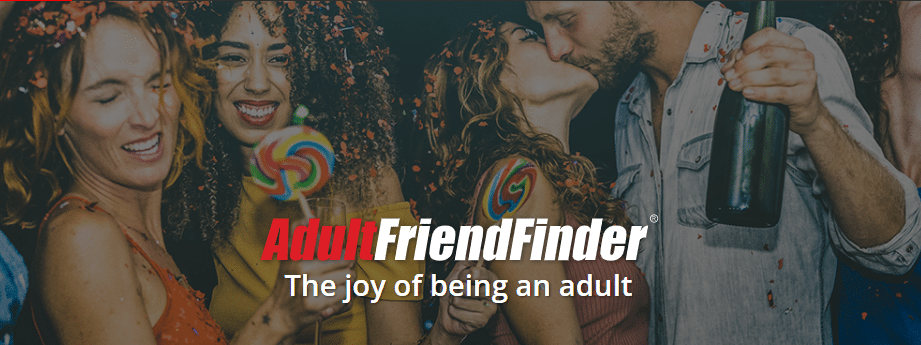Hooking Up in College

Navigating the college social landscape can be both thrilling and daunting, particularly in the realm of hookups. For many students, casual encounters often serve as a rite of passage shaped by peer pressure, curiosity, and the desire for stress relief. However, this seemingly carefree approach can have emotional, physical, and social consequences.
Whether one is considering hooking up or seeking to understand the dynamics involved, this article delves into the motivations behind these interactions, strategies for staying safe, and ways to manage post-hookup feelings. Is this the right choice for everyone? Let’s explore the topic further.
Why Do College Students Hook Up?
As a college student navigating the complexities of campus life, I observe that hooking up is often influenced by a combination of social dynamics and personal exploration. Many students participate in casual relationships to experience intimacy without the commitments associated with traditional dating.
Factors such as peer pressure and the desire for emotional connection significantly impact this hookup culture, where partying and socializing often intersect with romantic encounters. Understanding these motivations is crucial for comprehending the intricacies of college relationships.
1. Peer Pressure
Peer pressure significantly influences my college experience, often driving participation in casual relationships, particularly during social events like parties and gatherings. The culture surrounding these college events tends to normalize sexual exploration, which can lead to encounters that may not necessarily align with my personal values.
In such vibrant settings, I sometimes feel compelled to conform to the expectations of my peers, especially when surrounded by friends or fellow partygoers. Social apps further complicate this dynamic by offering a platform to connect, often intensifying the urgency to engage in physical relationships.
For example, at a typical college house party, I might encounter pressure to pair off or join in flirtation games that escalate quickly, leaving little room for my own hesitations. This environment can nurture a mentality where saying yes becomes an automatic response, overshadowing the critical importance of genuine consent and personal comfort.
2. Curiosity
Curiosity often drives me, as a college student, to experiment with casual relationships and hookups. This desire to explore my own sexuality and romantic connections is a natural part of young adulthood, where I seek to understand my preferences and desires.
As I navigate the complexities of intimacy, I encounter a spectrum of emotional responses, ranging from exhilaration to anxiety. This journey into sexual experiences not only provides insights into my personal boundaries but also opens avenues for discovering the various forms of young love.
While hookup culture is frequently perceived as superficial, I recognize that it can also lead to meaningful connections. It offers a platform to confront my vulnerabilities and preferences. Ultimately, these experiences shape my understanding of relationships, paving the way for healthier future interactions grounded in authentic desires and consent.
3. Stress Relief
For many college students, engaging in casual relationships often serves as a form of stress relief amid the pressures of academic life and social expectations. These encounters can provide a temporary escape from the demands of coursework and responsibilities, while also facilitating the formation of emotional connections.
Such interactions offer a means to unwind and find comfort in shared experiences, fostering a sense of belonging in an environment that can frequently feel isolating. Casual relationships enable individuals to explore their identities and emotions in a low-pressure setting, creating opportunities for both self-discovery and connection.
As I navigate the complexities of exams, deadlines, and personal challenges, these transient bonds can serve as a coping mechanism, alleviating anxiety while simultaneously enriching my social network. Ultimately, finding ways to connect emotionally, even if superficially, can play a crucial role in enhancing overall well-being during this transformative stage of life.
4. Social Status
In the competitive environment of college, I have observed that social status can significantly influence decisions regarding casual relationships. Many students view hookups as a way to enhance their social standing, which often leads to friends with benefits arrangements that shape social circles and peer interactions.
For some, engaging in hookup culture appears to be a strategic choice to navigate the complexities of social hierarchies. These connections can provide greater visibility and acceptance within peer groups. Different demographics, including varying racial and economic backgrounds, may experience this phenomenon in distinct ways. For instance, those from affluent backgrounds might approach casual encounters with a sense of entitlement, while others may face stigma or insecurity.
Understanding these nuances allows for a deeper insight into the multifaceted relationship between social dynamics and personal choices in intimate interactions. Ultimately, it reveals how perceptions of desirability and acceptance influence hookup behaviors among students.
What Are the Consequences of Hooking Up in College?
I recognize that the decision to engage in casual relationships during college can lead to a range of consequences that affect emotional health, social dynamics, and even physical well-being.
While these relationships may offer excitement and intimacy, they also carry risks that warrant careful consideration of personal boundaries and expectations.
1. Emotional Consequences
Engaging in casual hookups can lead to complex emotional consequences, particularly when distinguishing between hookups and relationships. While I may find enjoyment and excitement in these encounters, I also recognize that some individuals struggle with feelings of attachment or insecurity.
The fleeting nature of these interactions often stirs up conflicting emotions as I navigate the blurred lines of intimacy. When one person develops a deeper emotional connection, it can create a sense of vulnerability that may result in regret if the other person does not share the same feelings. This disparity can foster anxiety regarding emotional safety, leading individuals to question their self-worth and the genuine intentions of their partners.
As the aftermath of such experiences unfolds, it is not uncommon for feelings of loneliness and confusion to overwrite the initial excitement, heightening awareness of the emotional complexities associated with casual encounters.
2. Physical Consequences
The physical consequences of engaging in hookups can have significant implications for college students, particularly concerning sexual health and safety. Participating in casual relationships without appropriate precautions increases the risk of sexually transmitted diseases (STDs) and other health issues.
Numerous studies indicate that a substantial percentage of college students engage in hookups, often underestimating the importance of protection. Many overlook the concerning statistics surrounding unprotected encounters, which current data show can significantly elevate the risk of contracting infections.
These casual interactions not only expose individuals to STDs but can also lead to unintended pregnancies, complicating both their academic and personal lives. By prioritizing sexual health education and fostering a culture of open communication regarding safe practices, I believe we can give the power to students to make informed decisions that protect their physical well-being.
3. Social Consequences
Engaging in casual encounters can have significant social consequences that affect my relationships and friendships within the college environment. The shift in dynamics often leads to complications and misunderstandings, particularly among peer groups.
When I participate in a casual encounter, it may inadvertently influence not just my connection with the other person but also my broader network of friends. The group dynamics can change dramatically, as allegiances and loyalties are put to the test, often resulting in feelings of jealousy or exclusion among peers. These social ripples can trigger conflicts that challenge existing bonds, making it crucial for me to navigate my interactions with care.
By understanding how these social consequences manifest, I can work towards fostering healthier relationships, ensuring that I maintain a balance between romantic interests and friendships during this transformative phase of life.
How to Stay Safe While Hooking Up in College?
Ensuring safety while engaging in casual relationships in college necessitates clear communication, the use of protection, and a thorough understanding of personal boundaries. It is crucial to prioritize consent education to safeguard both emotional and physical well-being during these interactions.
1. Communication
Effective communication is essential in the context of hooking up, as it establishes trust and sets clear boundaries and expectations. By being open about desires and intentions, I can prevent misunderstandings that may arise during casual encounters.
When I engage in honest conversations about feelings and limits with my partner, it paves the way for a more enjoyable experience. Trust flourishes in an environment where each person feels heard and respected, allowing both of us to explore our connection without anxiety or confusion.
Discussing expectations not only clarifies the nature of the hookup but also reduces the likelihood of emotional complications later on. By prioritizing clear dialogues, I can ensure that we are on the same page, minimizing potential misinterpretations that could affect our interactions.
2. Protection
Utilizing protection is essential for safeguarding sexual health during hookups, as it reduces the risks of STDs and unintended pregnancies. I prioritize engaging in sexual consent discussions beforehand to ensure that both partners feel secure and respected.
These conversations not only establish clearer expectations but also give the power to individuals to prioritize their well-being and comfort. It is important for me to be aware of the various forms of protection available—such as condoms and dental dams—which can significantly lower the likelihood of infection transmission.
Additionally, educating myself on the importance of regular sexual health check-ups plays a crucial role in maintaining overall sexual well-being. Ultimately, fostering an environment of respect and open communication around these topics contributes to a healthier, more informed approach to casual relationships.
3. Knowing Your Limits
Understanding and respecting my personal boundaries is essential for fostering healthy hookups, enabling me to engage in casual encounters that align with my emotional readiness. Recognizing my limits allows me to make informed decisions and enhances my overall safety.
When I take the time to reflect on what I am comfortable with, I establish a framework that not only safeguards my well-being but also promotes more fulfilling and enjoyable interactions. This self-awareness serves as a guiding compass, helping me navigate the complexities of casual relationships while ensuring that both parties feel respected and valued.
By being clear about my personal expectations and communicating them effectively, I can avoid misunderstandings that may lead to emotional discomfort. Ultimately, embracing my limits encourages deeper connections, transforming what could be a fleeting moment into a mutually gratifying experience.
How to Handle Post-Hookup Feelings?
Navigating post-hookup feelings can be quite intricate, as emotions often vary significantly depending on the nature of the encounter. I find it essential to communicate openly with my partner about any feelings that emerge.
Alongside this, prioritizing self-care and seeking support when necessary is crucial for maintaining emotional well-being.
1. Communicate with Your Partner
Communicating with my partner about post-hookup feelings is essential for ensuring emotional safety and clarity. By sharing my thoughts and expectations, we can navigate our emotions more effectively together.
This exchange fosters trust and understanding, allowing both of us to express any uncertainties or concerns that may arise. When communication flows freely, it establishes a foundation for a more open dialogue about what each of us genuinely wants moving forward, whether that involves exploring a deeper connection or simply maintaining a casual arrangement.
These discussions help to prevent misunderstandings and hurt feelings, ensuring that both partners feel respected and valued. Overlooking this crucial aspect can lead to emotional turmoil, affecting not only our current relationship but also future interactions. Thus, open communication becomes a vital component for fostering positive relational dynamics.
2. Take Care of Yourself
I prioritize self-care after a casual encounter to nurture my emotional well-being and better understand my personal boundaries. Engaging in self-reflection allows me to process my feelings and make sense of the experience.
Taking time to unwind is equally important. I find that activities like journaling or practicing meditation provide clarity and support my emotional recovery. Additionally, reaching out to friends for support creates a sense of community and reminds me that I am not alone in this journey.
Establishing boundaries for future interactions is essential for safeguarding my emotional health and fostering healthier connections. These self-care strategies not only contribute to my personal development but also enhance my resilience as I navigate the complexities of romantic encounters.
3. Seek Support if Needed
If I find that post-hookup feelings become overwhelming, I understand the importance of seeking support from friends or professionals. This can provide valuable perspective and emotional readiness. Sharing my experiences with trusted individuals helps me navigate complex emotions and reduces feelings of isolation.
This process not only fosters a sense of connection but also encourages deeper conversations about my personal values and expectations in relationships. Friends often offer insights based on their own experiences, which helps normalize feelings of confusion or regret. Simultaneously, professional resources, like therapists or counselors, can assist me in reflecting on my emotional health and developing effective coping strategies.
Ultimately, prioritizing my emotional well-being through these support systems can lead to healthier relationships in the future, establishing a strong foundation for better self-understanding and enhancing my overall mental health.
Is Hooking Up in College for Everyone?
Determining whether hooking up in college is suitable for everyone necessitates a careful evaluation of individual preferences, cultural beliefs, and emotional readiness. While some individuals may flourish in a casual relationship setting, others might find it inconsistent with their values and personal needs.
1. Personal Preferences
Personal preferences significantly influence my decisions regarding whether hooking up is appropriate for me, as I recognize that everyone has unique dating preferences and attraction dynamics. By understanding my inclinations, I can work towards more fulfilling relationships.
For instance, I know that if I prioritize emotional intimacy, casual encounters may leave me feeling unsatisfied, while someone else might thrive in a no-strings-attached scenario. Various factors, including past experiences, cultural influences, and individual values, shape my perspective on hookups. The dynamics of attraction also differ; I may be drawn to physical chemistry, while others seek deeper connections, resulting in a diverse landscape in the dating world.
By navigating these preferences, I can clarify my personal boundaries and foster healthier interactions, ultimately leading to a more aligned and satisfying dating experience.
2. Cultural and Religious Beliefs
Cultural and religious beliefs significantly shape my perspective on hooking up, influencing my understanding of intimacy issues and relationship boundaries. These values often set the standards for what is deemed appropriate behavior in casual relationships.
For many individuals, these beliefs establish a framework that either promotes or discourages casual encounters, leading to varying levels of acceptance across different social groups. In communities where traditional norms are dominant, hookup culture may be stigmatized, which can foster feelings of guilt or shame in those who participate in such activities. In contrast, more liberal environments tend to celebrate casual intimacy, resulting in more open discussions about sex and relationships.
This divergence can have broader social implications, affecting how I and others navigate personal relationships, our sense of self-worth, and our alignment with societal expectations.
3. Mental and Emotional Readiness
Mental and emotional readiness are critical factors in determining whether a hookup aligns with my needs and desires. I recognize that my past experiences, feelings, and sense of emotional safety play a significant role in this decision, which is essential for ensuring a positive experience.
When I consider a casual encounter, it is imperative to reflect on my current state of mind and emotional landscape. My emotional readiness not only affects my enjoyment of the hookup but also influences how I feel afterward. Entering casual relationships without this awareness can lead to unexpected feelings or anxiety, ultimately diminishing my overall relationship satisfaction.
By prioritizing this emotional groundwork, I can create a safer space for both myself and my partners, thereby cultivating a more fulfilling and enjoyable experience that respects everyone’s emotional boundaries.
Frequently Asked Questions
What is considered hooking up in college?
In college, hooking up typically refers to engaging in some form of sexual activity with someone else, whether it be kissing, sexual touching, or intercourse. It can also include casual dating or one-time encounters.
Is hooking up in college the norm?
It depends on the college and the individual. Some college campuses may have a more hookup culture, while others may not. It’s important to remember that each person has the right to make their own choices when it comes to their sexual behavior.
What are the potential risks of hooking up in college?
The potential risks of hooking up in college can include unplanned pregnancy, sexually transmitted infections, emotional attachment, and sexual assault. It’s important to practice safe sex and communicate with your partner to reduce these risks.
How can I be safe while hooking up in college?
To be safe while hooking up in college, make sure to always use protection to prevent unwanted pregnancies and STIs. It’s also important to communicate with your partner and set boundaries. Trust your instincts and don’t be afraid to say no if you feel uncomfortable.
Is it possible to have a meaningful relationship through hooking up in college?
While hooking up is often associated with casual encounters, it is possible for a meaningful relationship to develop from it. However, it’s important to communicate with your partner and make sure you both have the same intentions. Don’t be afraid to discuss your expectations and feelings.
How can I handle the social pressure to hook up in college?
It’s common for there to be social pressure to hook up in college, but it’s important to remember that you have the right to make your own decisions about your sex life. Don’t feel obligated to engage in sexual activities if you’re not comfortable. Surround yourself with friends who respect your choices and don’t give into peer pressure.
My Go-To Platform for Flings, Affairs, and MILFs
Looking for top-notch flings, affairs, or MILFs? Skip the rest, AdultFriendFinder is the gold standard. Zero bots, zero fakes—just real connections. I've scored big in multiple cities. Sign up now, it's FREE!









